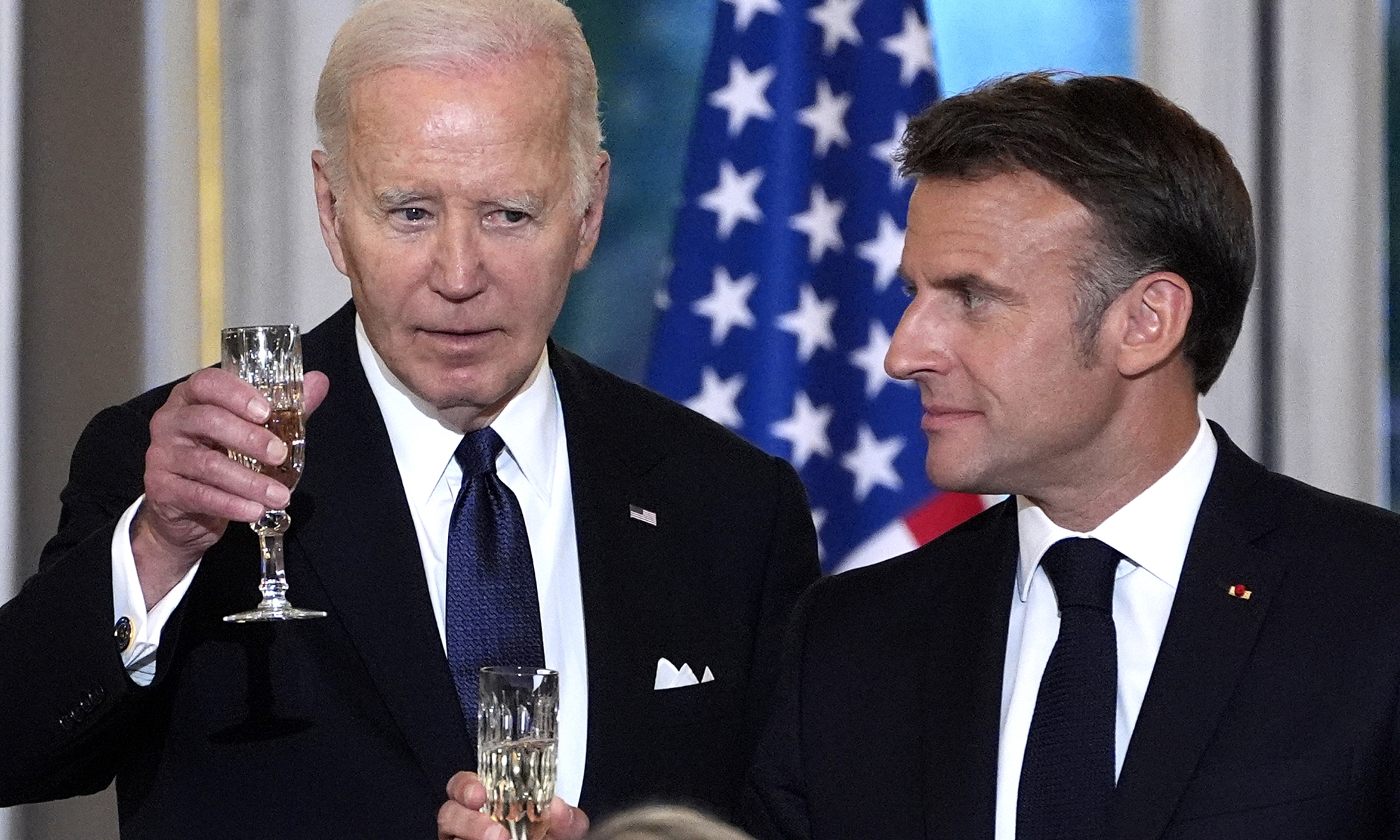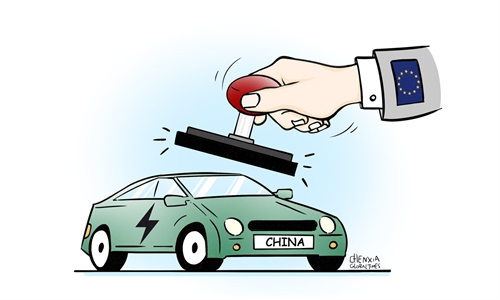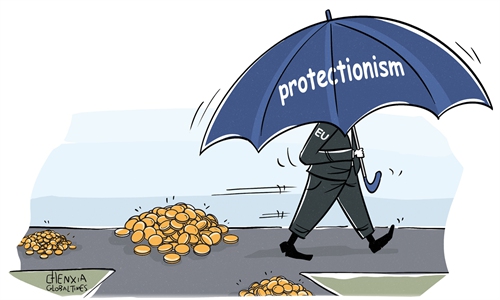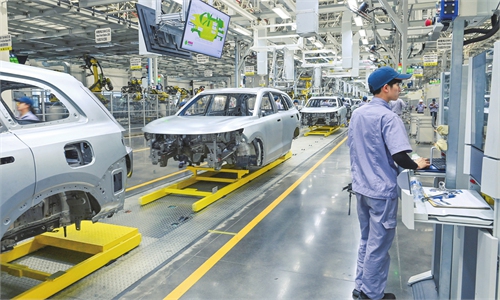Biden, Macron take aim at China amid growing fissures over Middle East conflict: experts

French President Emmanuel Macron, right, and President Joe Biden toast during a state dinner, Saturday, June 8, 2024 at the Elysee Palace, in Paris. Photo: VCG
US President Joe Biden and his French counterpart Emmanuel Macron took aim at China during Biden's visit to France, as Biden called for "free navigation" in the Indo-Pacific while Macron called for "coordinated" action against so-called "overcapacity" in China. Chinese observers said the US aims to bring its allies into the Indo-Pacific region to support its own strategy and to expand its presence, while sound China-EU economic and trade cooperation would be impacted if the EU imposes tariffs on Chinese goods.
Biden's visit comes as the US is trying hard to hold on to its alliance in Europe as growing fissures emerged over conflict in the Middle East and concerns over Trump returning to 1600 Pennsylvania Avenue.
"In the Indo-Pacific, we stand together for freedom of navigation, transparent governments, as well as fair economic practices," Biden told Macron during his visit, in a subtle reference to China's "growing influence" in the region, according to a transcript released by the White House website on Saturday. However, Macron made no such remarks.
"The US has a strong intention to bring its allies into the Indo-Pacific region to support its own strategy and to expand its presence. Therefore, Biden's remarks were an attempt to rope in its European ally to join its scheme," Li Haidong, a professor at the China Foreign Affairs University, told the Global Times on Sunday.
"France, however, sees it from a different point of view. They believe that playing a role in the Indo-Pacific region is an important stage for showcasing France's status as a major power and a significant symbol. Unlike the US, which aims to rally allies to compete with China, France seeks to demonstrate its status as a major power through interaction with countries in the region," Li said.
Through these remarks, Biden on one hand aims to bolster his own election prospects while on the other hand ensuring that any future Indo-Pacific policies under a potential Trump administration do not deviate from the current trajectory. "This is a significant action to constrain and limit Trump's future actions. It reflects a highly opportunistic and power-driven approach," Li noted.
Biden's core objective is to prevent Trump from disrupting the current structure of key US' alliances and thereby weakening the comprehensive strategic framework that he has crafted to counter China, experts said.
During Biden's visit, Macron also raised concerns of so-called overcapacity. "On the economic front, we are both concerned about China's unfair trade practices, which bring about overcapacity. This is of such importance for the global economy that we have to act in a coordinated fashion," Macron told reporters, according to the transcript.
While Macron called for "coordinated" action against China's so-called unfair trade practices, latest news reports from Western media outlets suggest that the European Commission has put on hold its decision on Chinese EVs for a few more days, underlying potential unintended consequences of any tariff hike.
Though Macron didn't directly mention China's EV industry, his main target may be Chinese EV sector given the recent threat of European tariffs on Chinese EV, according to analysts.
Macron's remarks reflect France's dual-character in its attitude toward economic and trade cooperation with China, Sun Yanhong, a senior research fellow at the Institute of European Studies of the Chinese Academy of Social Sciences, told the Global Times on Sunday.
On the one hand, France wants more trade with China so as to export more aircraft and agricultural products to China, but on the other hand, France has also shown protectionism, she said, noting that France was a main backer behind the EU's anti-subsidy investigations into Chinese EVs in October 2023.
Western politicians and media outlets' claim saying that China's EV sector has "overcapacity" is groundless, Sun said. "European imports of EVs from China is a purely commercial activity, which is out of real demand. In addition, the EU aims to end the sale of new petrol and diesel cars from 2035 but still faces the problem of insufficient production capacity of EVs. In this regard, Chinese EV makers can make a positive contribution," she added.
Following the US' step in imposing additional tariffs on Chinese new energy products will not only cause serious economic losses to Europe but will seriously harm the existing political mutual trust between China and Europe as well as mutually beneficial cooperation in a variety of fields, Sun said.
Chinese officials have also called the EU to pursue dialogue and negotiation to address trade disputes, instead of unilateral protectionist actions, so as to avoid undermining the broader China-EU cooperation.
During a roundtable meeting with Chinese businesses in Lisbon, Portugal, on June 4, Chinese Commerce Minister Wang Wentao said, "China welcomes healthy competition and opposes any form of vicious competition designed to stifle growth."



